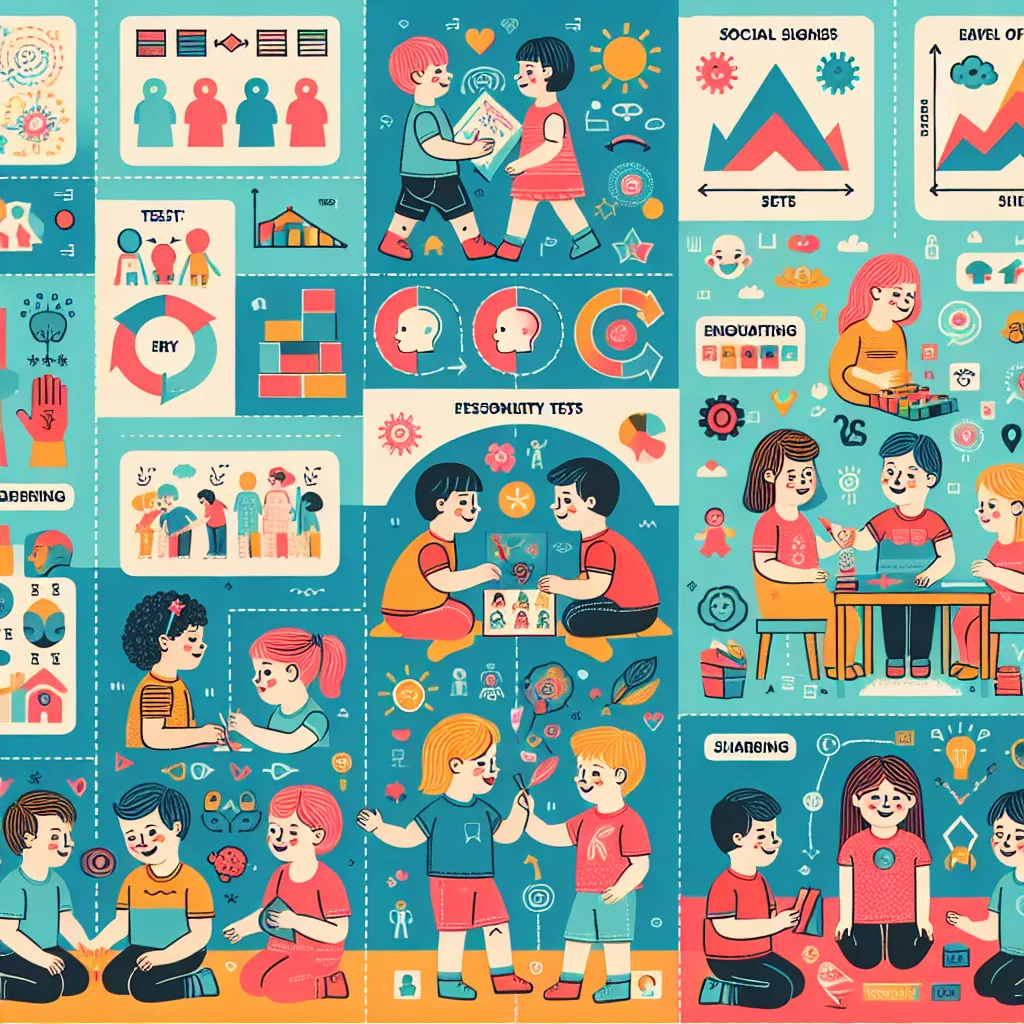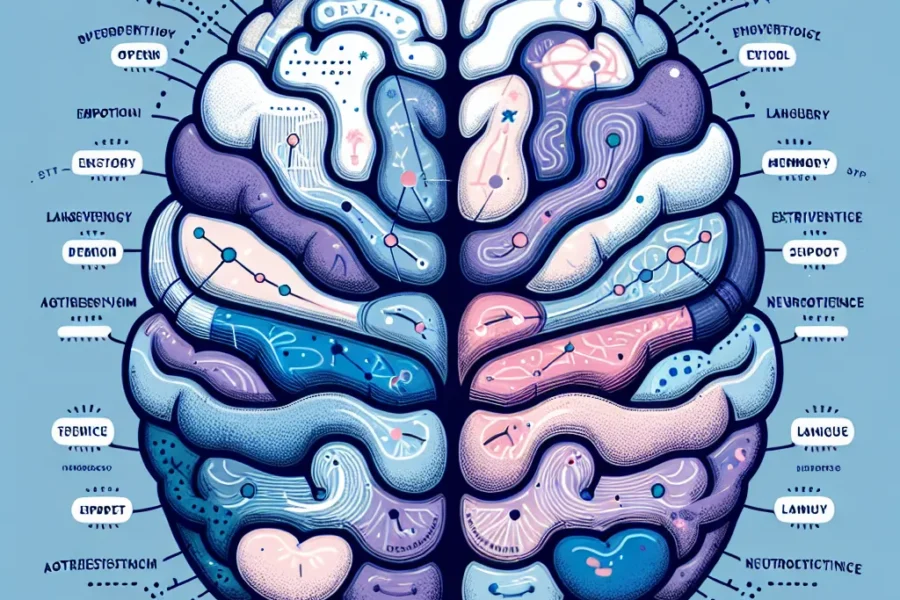The development of a child’s personality is a profound and intricate process that begins from the earliest moments of life. As parents, educators, and caregivers, it is essential to understand this developmental journey and recognize the early signs that indicate a child’s emerging disposition. This article will dive into the world of child personality development, discuss the early signs of personality traits, and explore various tests that can help gauge a child’s personality tendencies.
Personality is the unique combination of patterns that influence behavior, thought, motivation, and emotion in a human being. For children, personality development is shaped by a variety of factors, including genetics, environment, and experiences. Recognizing early signs of personality traits can help parents and caregivers nurture a child’s potential and address any concerns promptly.
One of the first signs parents might notice is a child’s temperament. Temperament refers to the innate aspects of an individual’s personality, such as the tendency towards a particular emotional response. Key temperamental traits include activity level, rhythmicity, approach/withdrawal, adaptability, intensity, mood, distractibility, and persistence. A child who is consistently cheerful and easily soothed may have a different temperamental makeup compared to one who is more prone to intense reactions and is slow to adapt to change.
As children grow, other facets of personality begin to emerge. Interests, social skills, coping strategies, and confidence all contribute to personality development. For instance, some children may show an early interest in social interaction and leadership roles, while others might be more content with solitary activities and demonstrate a rich inner life. Recognizing these nuances is crucial for providing appropriate guidance and support.
Cognitive and emotional development also interplays significantly with personality. Cognitive milestones, such as problem-solving and reasoning abilities, can influence how a child perceives the world and interacts with others. Emotional milestones, such as recognizing and managing feelings, contribute to a child’s self-awareness and empathy.
Observing a child in their natural environment is one of the most effective methods to assess personality development. This can be supplemented by structured tests to provide a more comprehensive perspective. Formal personality tests designed for children, such as the Myers-Briggs Type Indicator (MBTI), the Big Five Personality Tests, or projective tests like the Thematic Apperception Test (TAT), can be invaluable tools in identifying personality traits.
The MBTI for children, for instance, helps in understanding a child’s personality type, outlining how they prefer to focus their attention, take in information, make decisions, and organize their world. Such insights are beneficial in tailoring educational experiences and social interactions to best fit the child’s personality.
The Big Five Personality Test, on the other hand, evaluates traits based on five dimensions: Openness, Conscientiousness, Extraversion, Agreeableness, and Neuroticism (OCEAN). This test can support early recognition of a child’s predispositions and help predict various life outcomes such as academic success and social relationships.
Projective tests like the Thematic Apperception Test (TAT) encourage children to tell stories based on ambiguous images. The content of these stories can reveal underlying thoughts, feelings, and themes that may be influencing a child’s personality development.
Additionally, questionnaires and behavior rating scales filled out by parents, teachers, and sometimes the children themselves, such as the Child Behavior Checklist (CBCL) or the Strengths and Difficulties Questionnaire (SDQ), are used to assess various behavioral and emotional traits. The results can help professionals to develop a fuller picture of the child’s personality and how it may impact their daily life.
In addition to formal tests, informal assessments like observations and interviews can be instrumental. Child psychologists may engage in play therapy or other interactive activities to observe a child’s behavior and responses to different scenarios.
It is important to remember that any testing process should be conducted by a trained professional and that the results are just one aspect of the overall picture. Moreover, these tests need to be age-appropriate and considerate of a child’s developmental stage.
Personality development is also affected by the child’s environment. The role of parents in shaping personality cannot be understated. Parenting styles—whether authoritarian, authoritative, permissive, or uninvolved—all leave an imprint on a child’s emerging personality. Family dynamics, culture, and socio-economic factors further influence this complex process.
Educational settings also play a pivotal role. Schools and teachers can provide a supportive environment that fosters positive growth and respects individual differences. Through varied curricula and inclusive practices, educational institutions can accommodate diverse personality types and nurture each child’s unique traits.
Building high self-esteem and resilience is another crucial aspect of personality development. Activities and experiences that challenge children in healthy ways and provide opportunities for success can enhance self-confidence. Open communication helps children learn to express themselves and understand the perspectives of others, leading to well-rounded social and emotional development.
It is essential to celebrate each child’s personality, recognizing that diversity in temperament and behavior contributes to a rich and varied society. Through observation, testing, and supportive environments, we can encourage children to develop into confident individuals, prepared to contribute their unique gifts to the world.
In conclusion, the early years are a formative time for personality development. Careful observation and appropriate tests can help identify early signs of personality traits and provide the foundation for supportive actions. As a result, we can foster our children’s growth into self-assured, empathetic, and resilient individuals who are ready to face the challenges of the world. By understanding and nurturing our children’s personalities from a young age, we provide them the best chances for a fulfilling and successful life.



Leave a Comment